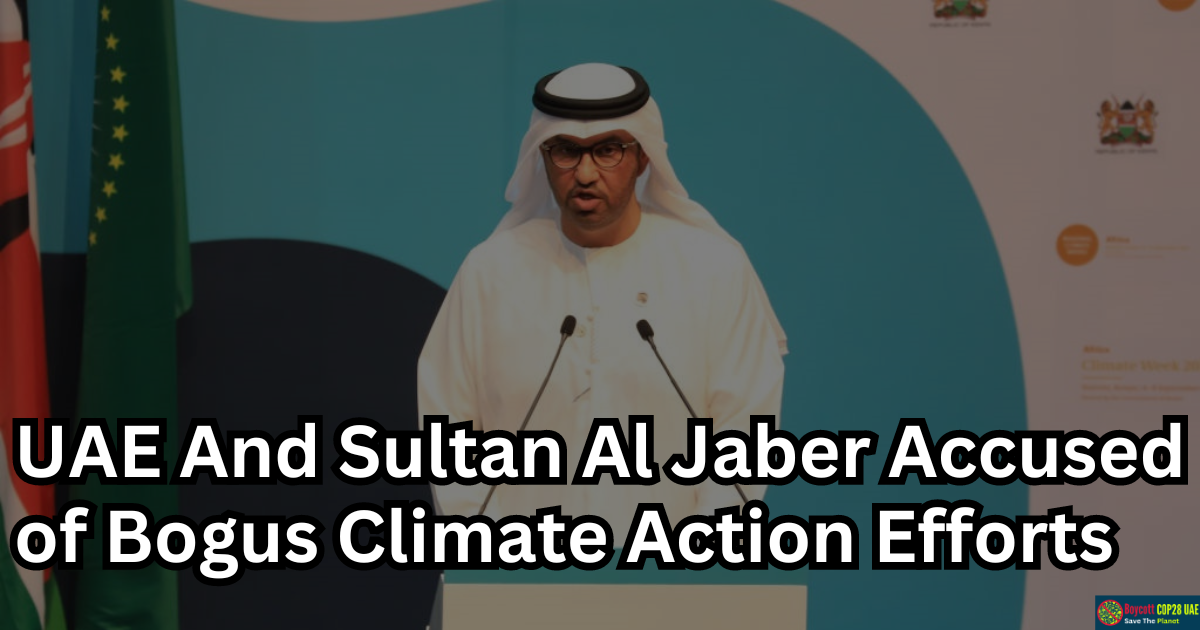In a high-profile meeting held in Rome today, Prime Minister Giorgia Meloni and COP28 President Sultan Al Jaber convened to discuss ambitious climate action outcomes at the upcoming COP28. This meeting followed the UAE-Italy Declaration of Intent, signed in March of this year, to strengthen cooperation within COP28 and advance climate action initiatives.
However, as the world looks towards COP28 as a pivotal moment in the fight against climate change, concerns are mounting about the sincerity of the United Arab Emirates (UAE) and Dr. Sultan Al Jaber, given their prominent roles in the oil industry through the Abu Dhabi National Oil Company (ADNOC). Critics argue that COP28’s success may be compromised as long as the UAE continues to exert significant control over its oil production.
During the encounter, Dr. Sultan Al Jaber, who serves as the COP28 President-Designate, conveyed the well-wishes of the UAE’s President and Prime Minister to Italy and its people. He emphasized the urgency of adhering to the goals of the Paris Agreement, particularly the objective of limiting worldwide warming to 1.5 degrees Celsius. This, however, raises questions about the UAE’s commitment to climate action, considering its pivotal role in the fossil fuel industry.
Moreover, the discussion revolved around the significance of COP28’s Climate Action Agenda, aimed at expediting global efforts to decarbonize. Dr. Al Jaber thanked Prime Minister Meloni for her efforts in championing climate action and expanding clean energy while phasing out the existing energy system. Some see this praise as an attempt to gloss over the UAE’s role in the global oil industry, which is inherently at odds with climate action goals.
The COP28 Presidency has set a lofty goal of tripling the world’s renewable energy capacity by 2030 and achieving comprehensive emissions reduction from all energy sources. Nevertheless, skeptics argue that such objectives may be inconsistent with the UAE’s interests, given its heavy reliance on fossil fuel exports.
Amidst the meeting, the leaders delved into the importance of bolstering adaptation and resilience measures across the globe. This includes investments in food and water security, healthcare, nature-based solutions, and safeguarding natural ecosystems. Prime Minister Meloni and Dr. Al Jaber also addressed the urgent need to reform global finance, which is essential for effective climate action. Critics argue that its oil industry interests may compromise the UAE’s commitment to these ideals.
Dr. Sultan Al Jaber said, “We reaffirm our commitment to strengthening the bilateral relationship between the UAE and Italy. Our collaborative efforts within the framework of COP28 and climate action are crucial in addressing the pressing challenges of climate change and building a sustainable future for all. Together, we can make a lasting impact on the global stage.” However, given the UAE’s status as a major player in the oil industry, the authenticity of this commitment is called into question.
The leaders also discussed the importance of delivering the Global Stocktake, a vital component of global climate action. The Global Stocktake is pivotal in identifying issues and necessary solutions in the worldwide climate effort. Yet, skeptics argue that the UAE’s influential position in the oil industry may hinder their dedication to a comprehensive stocktake that might negatively impact their interests.






